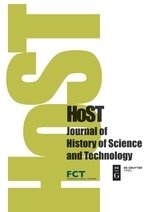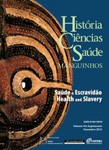The patterns by which epidemics spread have generally been differentiated, some lives being spared and others being taken. In the case of cholera epidemics, this becomes clear if we observe how some people lack access to clean water or face degraded living conditions, as recently seen in Haiti. With the support of the National Council for Scientific and Technological Development (CNPq), researchers at the Oswaldo Cruz Foundation turned to the archives at Rio de Janeiro’s Santa Casa da Misericórdia Hospital to study mortality in the city in 1855 and 1856, when Brazil witnessed its largest cholera epidemic. While scholars had already known that the epidemic killed more slaves than members of the free population, these investigators discovered that the epidemic’s main target, proportionately speaking, was Africans, whether enslaved or not.
The authors highlight two aspects of the context of this epidemic in Rio de Janeiro in the nineteenth-century, a period when cholera was assailing many cities around the world. The first was how the city’s healthcare services were organized at the time, on the heels of Brazil’s first recorded yellow fever epidemic, in 1849, which had the effect of producing better data records. The second had to do with the end of the transatlantic slave trade, which had been prohibited in 1850 and had thus impeded the former ongoing renewal of the African population, among which deaths were extremely high.
The analysis reveals the historical dimension of the differentiated spread of infectious diseases, a phenomenon which unfortunately remains with us today, despite the end of slavery and regardless of advances in sanitation, medicine, and the biomedical sciences.
The article “Slave mortality during the cholera epidemic in Rio de Janeiro (1855-1856): a preliminary analysis,” by Kaori Kodama, Tânia Salgado Pimenta, Francisco Inácio Bastos, and Jaime Gregorio Bellido, was published in the journal História, Ciências, Saúde Manguinhos, v. 19, supplement, Dec. 2012, and is available online at www.scielo.br/hcsm







